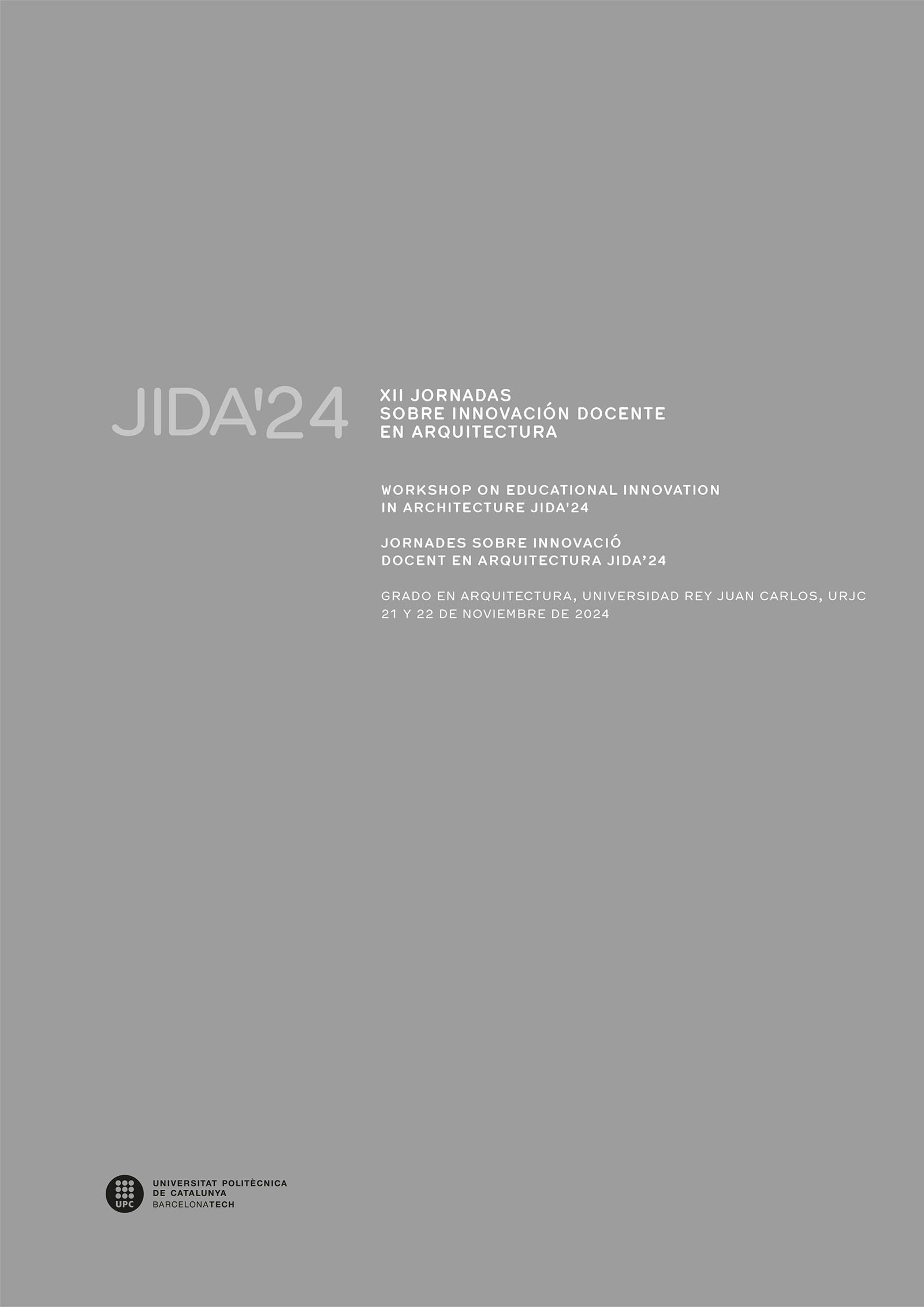[Un]thinkable Genealogies: a digital collaborative learning method based on the investigation
DOI:
https://doi.org/10.5821/jida.2024.13278Keywords:
collaborative research, collective intelligence, archive, digital map, genealogiesAbstract
[UN]THINKABLE GENEALOGIES is a research teaching method applied to postgraduate courses that investigates the search for elective affinities between architectural practices drawn from different times and contexts. The main objective is to produce collaborative research capable of generating shared knowledge and collective intelligence. The group work of students and teachers is carried out following the inverted classroom method of research. This collaborative method is supported by interactive digital tools that make it possible to project past discourses in the present, relating techniques and concepts used by architects and thinkers of the last century with the current architectural practices of the most representative offices of the contemporary panorama.
References
Bishop, Jacob. L., y Verleger, Matthew. A. 2013. “The flipped classroom: A survey of the research”. En ASEE Annual Conference & Exposition, Atlanta, Georgia. https://peer.asee.org/the-flipped-classroom-a-survey-of-the-research. Accedido 15 julio 2024.
Bloom, Harold. 2009. La ansiedad de la influencia: una teoria de la poesía. Madrid: TROTTA.
Dillenboug, Pierre. 1999. “What do you mean by ‘collaborative learning’?”. En Collaborative Learning: Cognitive and Computational Approaches editado por P. Dillenbourg (ed.). Amsterdam: PergamonPress.
Foucault, Michel. 1969. L’Archéologie du savoir. París: Éditions Gallimard.
Garcés, Soledad. 2018. “¿Cómo funciona clase invertida?”. Accedido 15 julio 2024. https://www.grupoeducar.cl/material_de_apoyo/funciona-clase-invertida/
García-Germán Vázquez, Jacobo. 2024. Prácticas documentalistas. Técnicas y genealogías. Ensayos críticos 04. Madrid: DPA Prints´, Ediciones Asimétricas.
Glaser, Barney y Strauss, Anselm. 1967. The discovery of grounded theory: Strategies for qualitative research [El descubrimiento de la teoría fundamentada. Estrategias para el análisis cualitativo]. New York: Aldine.
Glaser, Barney. 1992. Basics of grounded theory analysis [Bases del análisis de teoría fundamentada]. Mill Valley, CA: Sociology Press.
Herzog & de Meuron. 2002. Natural History. Montreal, Baden, Switz: Lars Müller Publishers.
Rogoff, Barbara. (1993a). Aprendices del pensamiento. El desarrollo cognitivo en el contexto social. Barcelona: Paidós.
Roselli, Néstor Daniel. 2011. “Teoría del aprendizaje colaborativo y teoría de la representación social: convergencias y posibles articulaciones”. Revista Colombiana de Ciencias Sociales, 2 (2) : 173-191.
Yaneva, Albena. 2020. Crafting History.Archiving and the quest for architectural legacy. Nueva York: Cornell University Press.






















